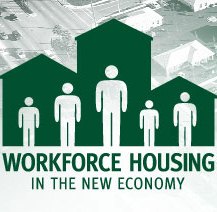The Marathon City Council and staff were to hold a workforce housing workshop Tuesday on the use and potential development of the city-owned property at 104th Street. The June 27 meeting at Marathon City Hall took place after press time. The agenda proposed that the council discuss if the city should move forward with affordable housing on the site, which currently contains the new public works/utility building but has sufficient space behind it to allow housing. If the council decided not to pursue construction, it was to decide what other uses should be considered there. Discussion topics were to focus on types of units and how many, and target groups for occupancy, such as very low income, median income or in between.
 The Greater Marathon Chamber of Commerce advised its members that potential discussions might include rent or mortgage targets and land ownership options. Councilman John Bartus said the city has been proactive at supporting affordable housing construction over the past few years, and that after the citizen affordable housing task force put forth several ideas, developers put together good proposals. Bartus said he expects the 104th Street location to include about 20 units. The council was to further consider what operating model should be used, such as whether to lease the land, and who would be responsible for the property’s infrastructure and maintenance. In the past, the council sought to avoid having the city act as a landlord. However, Councilman Mark Senmartin said, as a municipal government, the city could get low-cost loans which means it ought to be able to build housing less expensively than a developer.
The Greater Marathon Chamber of Commerce advised its members that potential discussions might include rent or mortgage targets and land ownership options. Councilman John Bartus said the city has been proactive at supporting affordable housing construction over the past few years, and that after the citizen affordable housing task force put forth several ideas, developers put together good proposals. Bartus said he expects the 104th Street location to include about 20 units. The council was to further consider what operating model should be used, such as whether to lease the land, and who would be responsible for the property’s infrastructure and maintenance. In the past, the council sought to avoid having the city act as a landlord. However, Councilman Mark Senmartin said, as a municipal government, the city could get low-cost loans which means it ought to be able to build housing less expensively than a developer.
If the city chooses to get into the development business, it could conceivably accumulate payments from inhabitants that could perpetuate city-created housing into the future, Senmartin said. He said another consideration is that Marathon taxpayers pay for the property, so if the city turns development over to a contractor, the contractor benefits from taxpayers’ investment, which does not sit well with him. Alternatives might be partnering with Habitat for Humanity, building two-story townhomes modeled after those on 73rd Street or offering a low-cost lease to a builder. Senmartin said while 32 or so units is the maximum density allowed at the site, he would prefer around 25 so as not to pack them in so tightly. Vice Mayor Michelle Coldiron expected the meeting to be productive. “We are not a council that kicks the can down the road,” she said. “We all agree we should do something.” Coldiron added that the city has reserved 30 affordable housing permit allocations expressly for this city-owned site in the event it decided to use the remainder of the allocations itself.
If more are needed in the future, the city can ask the county for more units, especially if building plans are attached to the request. Coldiron also noted the city could decide to rezone the property for commercial development or put it out to bid for developers. Citizen public comment periods during the meeting could help steer the council direction.
